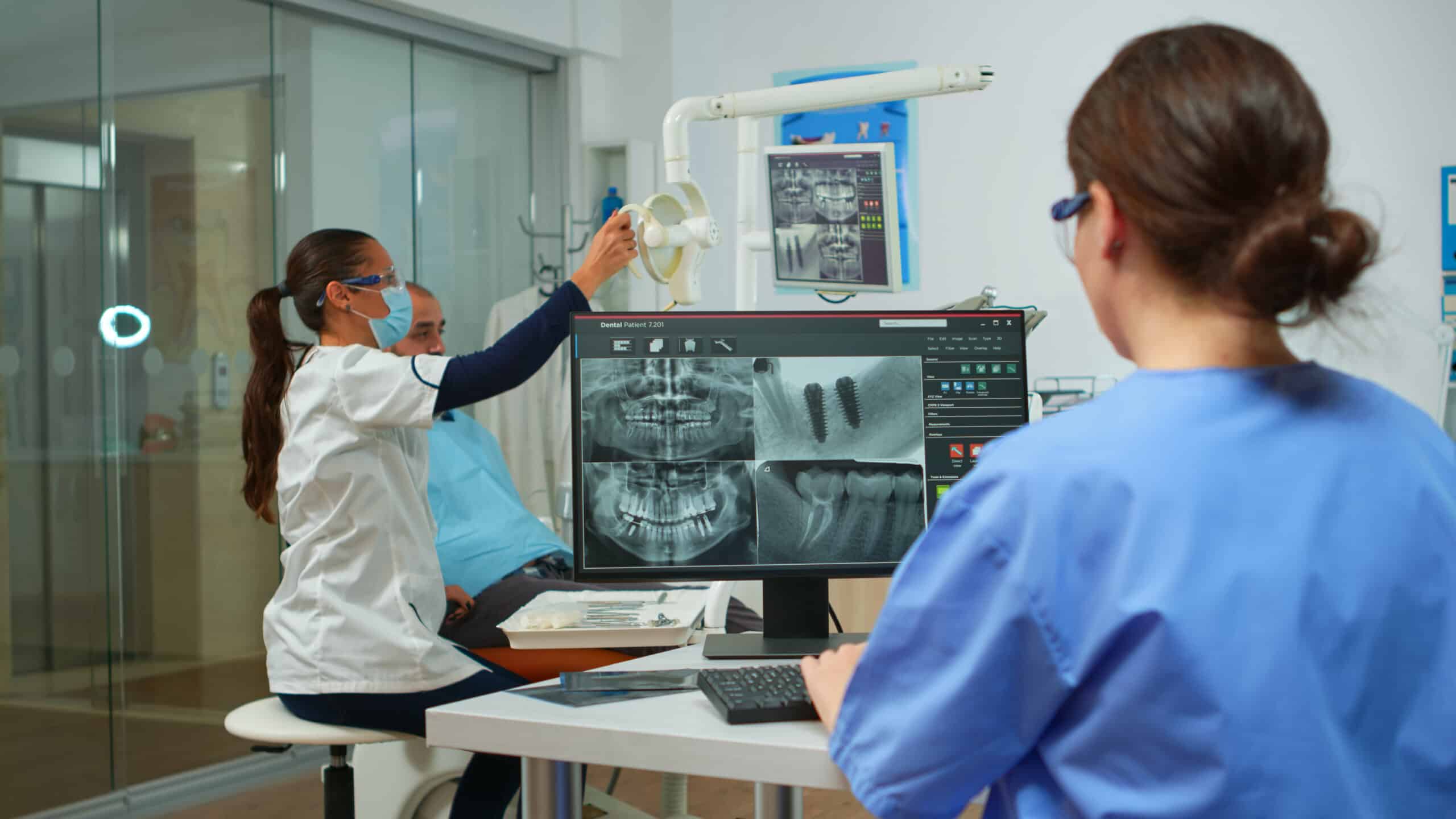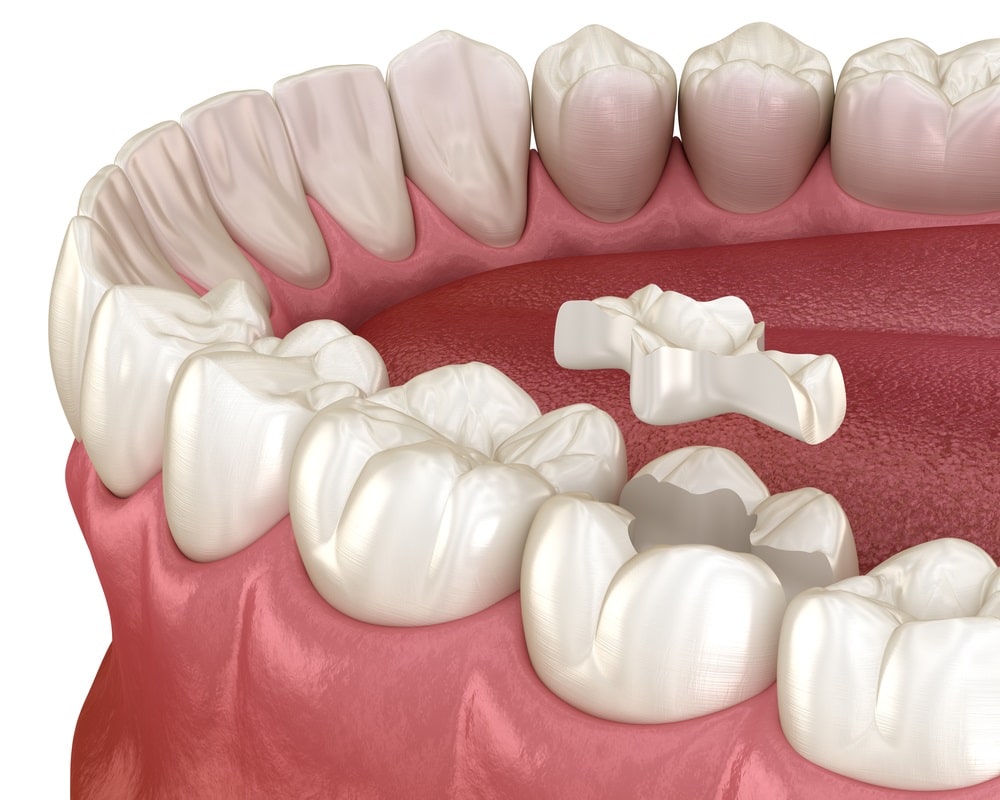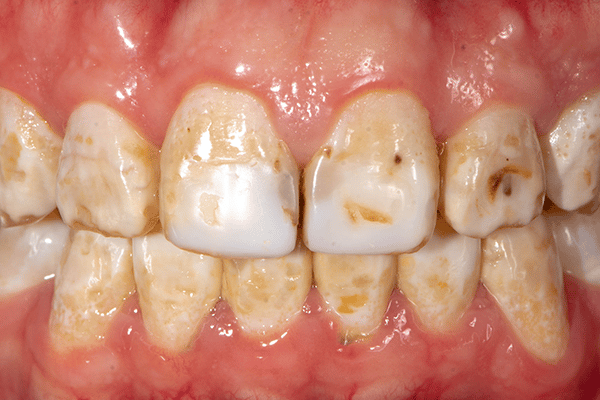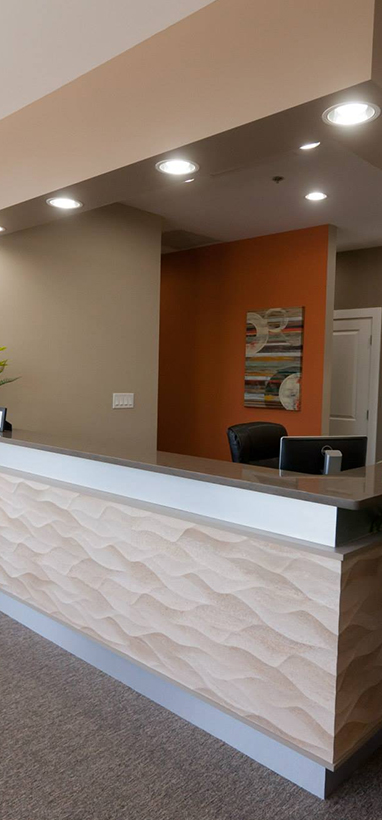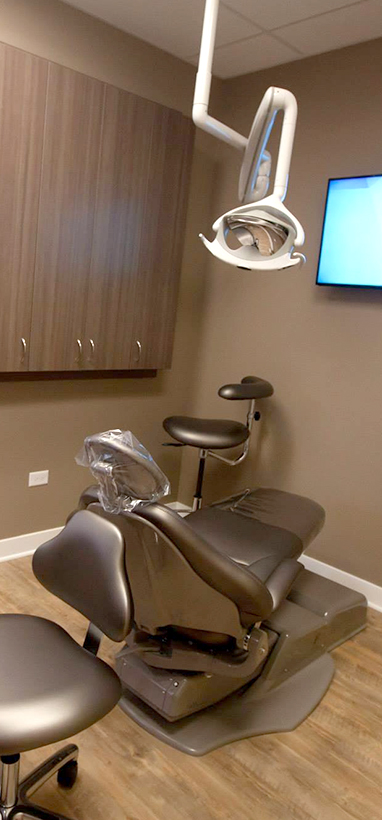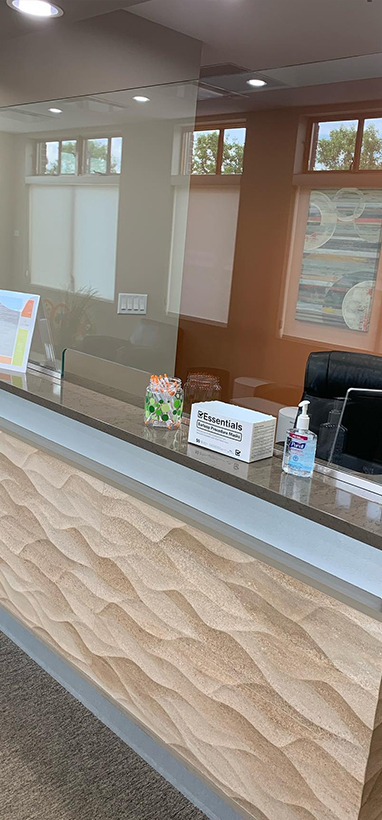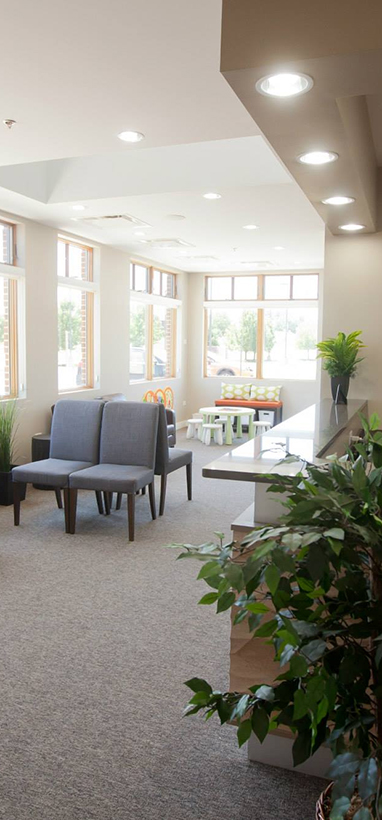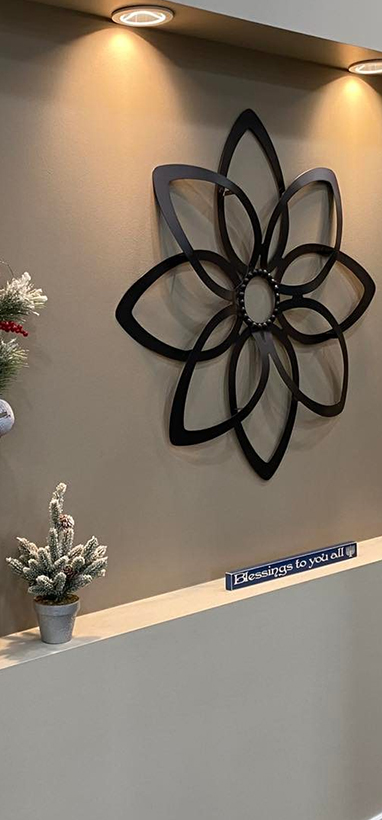1516 Legacy Cir, Naperville, IL 60563
Receding Gums: What Causes, How To Prevent It And Will Surgery Help?
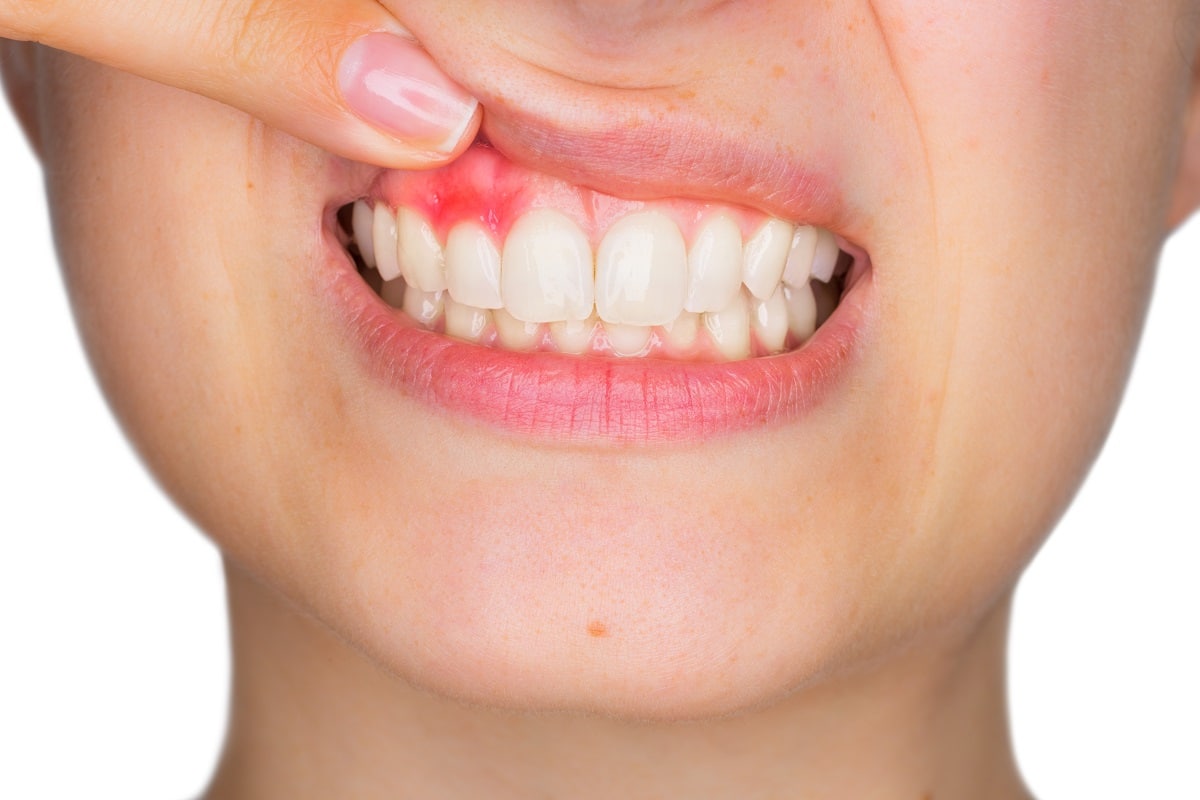
If you ever had hot or cold sensitivity when eating, felt a notch at the top of your tooth, or noticed that your teeth are getting longer in the mirror, you may have a condition called receding gums. Receding gums is a manageable problem, but it is a problem nonetheless, and one you should see your dentist about. A receding gum line occurs when the tissue at the neck of the tooth draws back or pulls away from the tooth. This process exposes the root of the tooth which can leave the tooth vulnerable to root decay. It’s important to recognize gum recession early to prevent it from needing more aggressive treatment such as gum surgery or even worse – tooth extraction.
At Living Well Dental, we provide the residents of Naperville and the surrounding Chicagoland area with the best dental services and advice, and that starts right here on our website. In this post, we’ll explore how to identify a receding gum line, the most common causes, and how you can prevent this problem. We’ll also discuss treatment options, including surgery, for receding gum lines. Let’s get started.
What Is the Receding Gum Line?
In this section, we will answer the question, what is a receding gum line?
A receding gum line refers to the process whereby the gum that holds your tooth in place begins to recede, exposing more of your tooth. Some people believe that gum recession is a normal part of aging but that is not true. A receding gum line can be an indication of a more serious problem going on with the gum tissue. If this process is left untreated it may lead to tooth loss. Don’t hesitate to have your gum recession evaluated, because if you have mild receding gums it is possible that you can repair that with a non-surgical procedure called scaling and root planing. People with severe receding gums will notice increased tooth sensitivity when eating or drinking cold or hot foods. This type of severe gum recession may need surgery to repair.
The fact that receding gums are hard to spot in the early stages can be a problem, given that damage to the gums is hard to repair. However, if you are conscious of these early warning signs and take good care of your teeth and gums, you can avoid long-term damage. Let the best Naperville Dentists at Living Well Dental Group evaluate your gum recession and determine the appropriate treatment needed. Don’t delay.
What Causes Receding Gums?
The question “why are my gums receding?” is asked pretty often online…and in the dentist’s chair! There isn’t one magic answer. In fact, there are several receding gum causes, but some are more common than others. These include:
Smoking
Smoking is bad for lots of reasons, but you may not have known that it actually causes gums to recede and negatively impacts gum health overall.
Periodontal Disease
Periodontitis is severe gum disease. It causes the gums to retract from the teeth and become infected. Once this happens, the damage is done to the bones holding your teeth in place, meaning receding gums can eventually cause you to lose teeth.
Poor Dental Hygiene
If you don’t regularly brush and floss your teeth, a build-up of plaque and tartar ensues. This build-up puts you at greater risk for developing periodontal disease and gum recession.
Brushing Too Hard
It might seem counterintuitive, but if you brush your teeth too vigorously, you can cause your gums to recede …so remember to be gentle when brushing!
Clenching or Grinding
Clenching and grinding cause teeth to flex at the weakest point which is the gum line. This flexing irritates the gum tissue and encourages it to migrate away from your teeth.
Misaligned Teeth
Misaligned teeth are at greater risk of developing periodontal disease and traumatic occlusion. Both are risk factors for gum recession.
Can Receding Gums Be Reversed?
The most common question in regards to receding gums is can receding gums grow back. The most straightforward answer is no.
Unfortunately, once the damage is done to cause the gums to recede you cannot reverse receding gums. However, there are things you can do to prevent it from getting worse.
Regular dental visits can help to recognize early warning signs associated with gum recession. These warning signs can include wear facets, traumatic occlusion, tissue abrasion, tissue trauma, bad breath, and bleeding gums. Once the gum recession has occurred, surgical intervention is necessary to fix receding gums. The sooner that gum recession is recognized and treatment to repair the gum tissue occurs, the more likely that further damage will not be done to the gum line.
What Is Receding Gums Surgery?
Surgery is necessary to repair moderate to severe gum recession. Unfortunately, the tissue will not regenerate on its own. Depending on the cause of your receding gums will depend on the type of receding gum line surgery that is needed. An appointment with one of the highly knowledgeable dentists at Living Well Dental Group can best determine what is necessary to fix receding gums.
There are two primary ways that we can help fight receding gums. Beyond improving your dental hygiene, we’ll stop gums from receding more through scaling and root planing, and gum surgery.
Scaling and Root Planing
This procedure can be completed in one visit. It starts with the removal of all the hardened tartar and plaque that forms below the gum line. Once that has been removed, our hygienists will smooth out the roots of your teeth so that the gums find it easier to naturally reattach. This is known as “root planing.”
Gum Surgery
Receding gum line surgery is for people with advanced-stage gum recession. There are different kinds of surgery, including regeneration and open flap scaling and planing.
- Open flap scaling and planing is similar to the scaling and root planing described above but involves the folding back of the damaged gum tissue to access more of the roots. Once cleaned, the gum is reattached.
- Regeneration is a kind of surgery designed to help repair damaged gum and bone tissue. Bacteria and plaque will be removed before the dentist implants a protein that stimulates the growth of tissue. This will help restore damaged gum tissue and bone, and the gum will then reattach on top of the tooth.
Treatment Tips: How You Can Stop Receding Gums From Getting Worse
If you already have receding gums you may be asking yourself, how do I stop receding gums from getting worse. Although these things can help receding gums from getting worse, they will not fix receding gums. The best option to fix receding gums is to get treatment advice from the dental experts at Living Well Dental Group.
This is how to fix receding gums by preventing them from getting any worse.
- Wearing an occlusal guard at night can help to minimize the effects of clenching and grinding. This will reduce your risk of gum recession.
- Always using an electric or soft toothbrush. This reduces the likelihood of abrading the tissues and causing them to recede.
- Avoid abrasive toothpaste.
- Avoid tobacco use.
- Non-surgical scaling and root planing may be necessary to remove the bacteria below the gum line which will help minimize the chances of gum recession.
- Surgical therapies such as gum grafting may be necessary.
- ClearCorrect (invisible braces) – getting teeth into a better alignment will help to reduce the chances of traumatic occlusion and periodontal disease. Both contribute to gum recession.
Conclusion
The leading approach to receding gums is to prevent it from happening. Visiting your dentist regularly can help identify problems that may cause receding gums before it happens. If you know that you already have receding gums, book a consultation today to evaluate what the best treatment options are available to help fix your receding gums.
Need Help? Living Well Dental Group Helps You Fight Receding Gums and Improve Dental Health.
At Living Well Dental Group, we’ll help you fight receding gums whether you’re in the early stages of suffering from a more severe gum recession. Our team will walk you through the best practice for cleaning and caring for your gums at home, provide professional tooth cleaning services, and advise you on the best options for moving forward.
Whether you’re looking for advice on surgery or consultation, don’t hesitate to call the team today on (630) 505-1516, or getting in touch online through our contact page!


